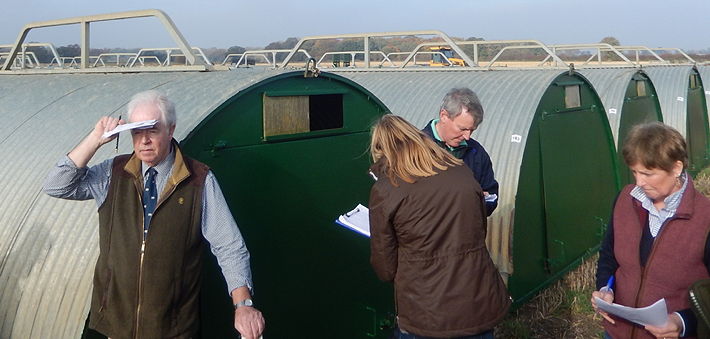Although the SPP has only moved by a gnats crochet, putting on 0.04p to stand at 162.78p, the influential German producer price continues to rise, putting on another 5 Euro cents to stand at 1.96 EUR (compared with 1.40 EUR a year ago), which is equivalent to 164p/kg in real money.
However, the overall picture seems to be one of mixed messages in the market place as far as global pig meat values are concerned, at a time when Chinese demand has fallen due to the Coronavirus epidemic, which is keeping a lot of the population at home, with some industries on short time working.
There are also concerns in the UK over falling demand for all red meats, not helped by plant protein replacement foods competing with meat in the retail and catering sectors.
UK spot bacon prices have remained at generally similar levels on the week, trading between 160-164p in the main and weekly contribution prices have been largely unchanged between 1.55p and 163p.
Cull sow prices have taken another upward step following the German lead, with UK cull sow exporters putting another 3p or so onto their prices, with the result that most culls are now worth between 112-118p/kg.
The value of the Euro has held at similar levels to 7 days ago and on Friday traded worth 83.64p/kg.
Weaner prices are continuing to improve, with the latest AHDB 7kg average rising from £41.72 to £42.51 and 30kg weaners also firmer, moving up from £57.16 to £59.07.
Feed prices are holding steady, with March feed wheat traded at £158/t and September at £166/t and barley remains at a discount with deals agreed for March at £135/t and for September at £140/t. Spot deals for UK feed wheat on an ex-farm basis have been averaging £146.20/t.
As far as proteins are concerned, the market has seen a slightly firmer uptake with March Hipro soya worth £308/t and November-April 2021 £300/t. Rape meal prices have remained generally unchanged with March-July 2021 quoted at £198/t. November-January 2021 at £189/t.
Reports are still flooding in concerning the effect that the ongoing period of monsoon like weather across much of the UK will have on cereal markets and the price of straw, although global factors can soon overwhelm what happens in our little country. But in the north of England in particular, straw supplies are likely to be much lighter than previously because of the unsuitable drilling conditions, with large areas unlikely to be cropped this year unless the rain ceases very soon.
And finally, recent reports are indicating a partial turnaround in Chinese pig numbers with breeding sow numbers up by 1.2% month on month in January, which is the fourth month in a row where pig numbers have risen.
Data has indicated that the number of pigs in China coming forward for slaughter has gone up by 18% in January compared with 12 months earlier and a package of loans is being organised by the Chinese government to allow pig producers to re-stock their farms.
The Chinese market remains a major customer to the UK and many other pig production countries, but the time may come when the Chinese herd recovers most of its lost production and producers in the Western world will no longer be able to rely on the Chinese market underpinning domestic pig meat values.




